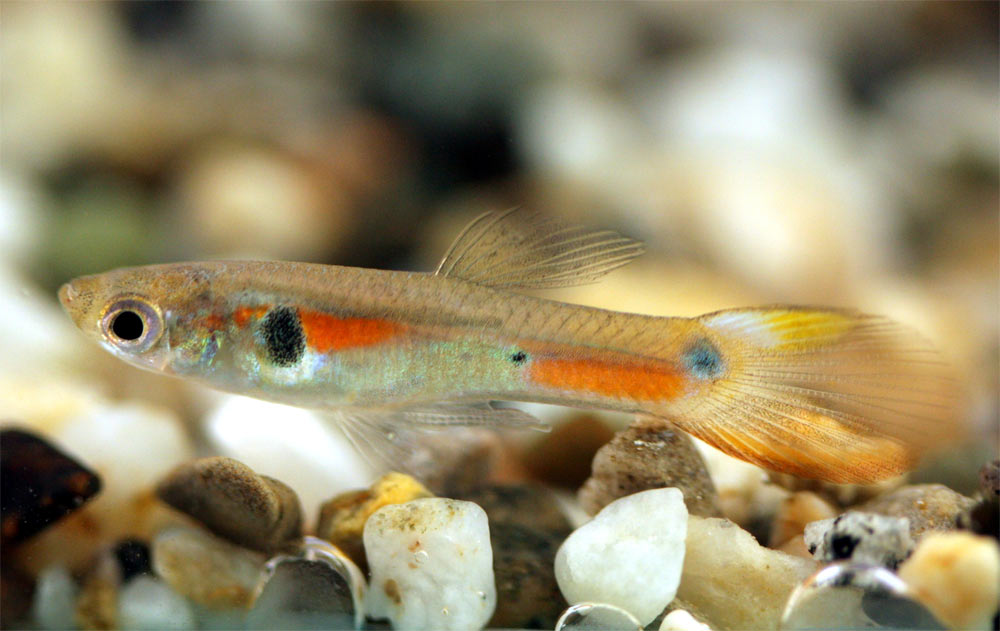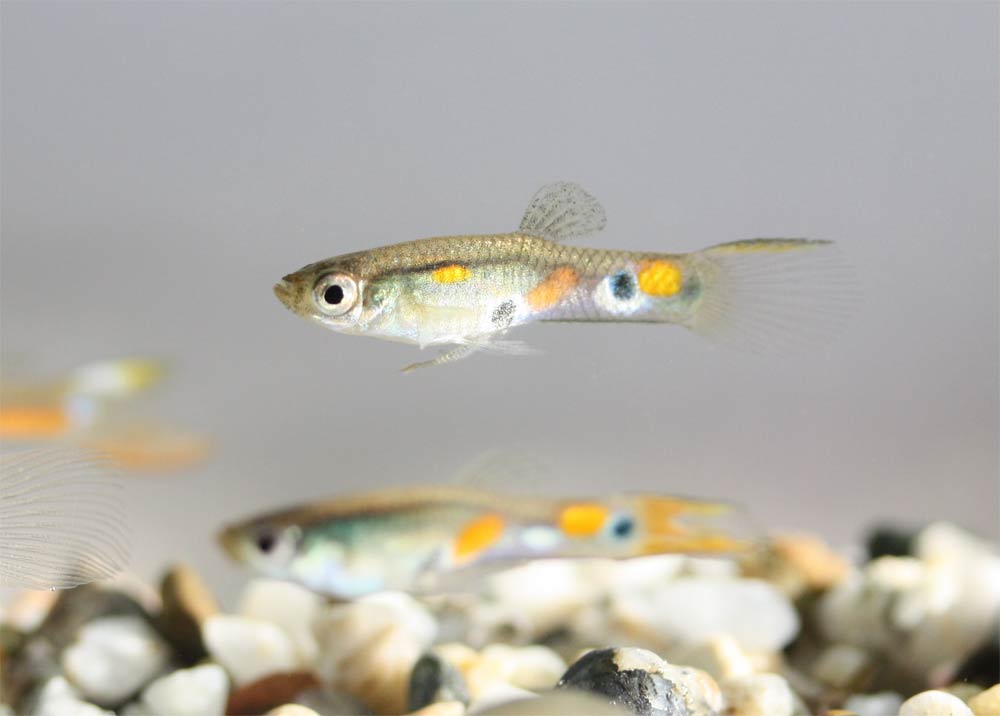Wanna Get Lucky? Hang Around Ugly (Fish) Pals

Ugly friends can make you look better, at least if you're a guppy, researchers say.
Scientists investigated guppies (Poecilia reticulata), a common aquarium pet, and one of the few fish species to directly copulate during sex. Females of this species are promiscuous, and prefer flamboyant males with large spots of color on their bodies.
Recent theory suggests that in species where females prefer showy mates, males might prefer courting females that are surrounded by relatively drab males. In other words, males should prefer surroundings that make them look attractive.
To prove this theory, researchers experimented with wild-caught guppies from Trinidad. They had male guppies choose between two females surrounded by either a pair of drab males or a pair of males with large orange body spots. They also focused on whether males had prior experience courting females in the presence of competition or not.
The scientists found male preference for relatively unattractive competitors increased with experience, with experienced males spending about 62 percent of their time with females surrounded by relatively drab males, while more naive males spent only about 57 percent of their time with such females. Similar findings were seen when it came to females that males had previously observed surrounded by drab males.
In fact, as long as males were approaching females surrounded by even drabber males, their chance at getting some action increased.

"We believe we have showed how drab males can still be chosen by females — if they are able to exploit the right social context," researcher Clelia Gasparini, a behavioral ecologist at the University of Western Australia, told LiveScience. In other words, drab males can get sex if they discover females surrounded by even drabber males. [The Animal Sex Quiz]
Sign up for the Live Science daily newsletter now
Get the world’s most fascinating discoveries delivered straight to your inbox.
These findings might hold true at times in other species, including humans, but further confirmatory research is needed. "Different outcomes for different species are not surprising — every species has peculiar mating systems," Gasparini said. For instance, choice of partners might not be based only on attractiveness, but other traits, such as the ability to provide parental care to offspring.
Past research found the reverse was apparently also true — that having a good-looking significant other will cause other potential mates to find a man or woman more desirable. Still, humans are different from guppies. For instance, monogamy is common with humans but not guppies, "and all together this makes our mating system quite complex to compare with the results in guppies," Gasparini said.
Future research can analyze how male guppies improve their courtship with experience, and how long they remember and can use knowledge of their rivals' quality, Gasparini said.
Gasparini and her colleagues Giovanna Serena and Andrea Pilastro detailed their findings online Feb. 13 in the journal Proceedings of the Royal Society B: Biological Sciences.
Follow LiveScience on Twitter @livescience. We're also on Facebook & Google+.










